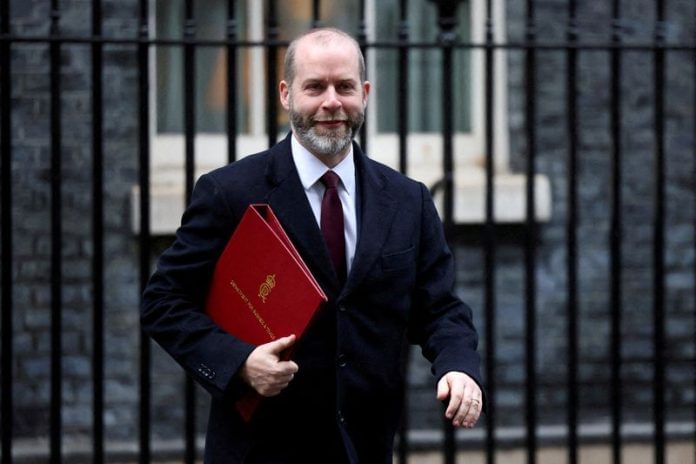LONDON/PARIS (Reuters) -Britain’s trade minister Jonathan Reynolds will meet U.S. Trade Representative Jamieson Greer on Tuesday to discuss the implementation of a trade deal that has been complicated by the announcement of fresh U.S. tariffs on steel.
British Prime Minister Keir Starmer and U.S. President Donald Trump agreed to reduce tariffs on British imports of cars and steel to the United States, but a delay in implementing the deal means tariffs may go up before they come down.
Last week, Trump said that tariffs on imported steel would rise to 50% from 25% starting on Wednesday. Industry body UK Steel said it understood that British producers were likely to be affected, which would be a “body blow” to the sector.
A British government spokesperson said the UK was engaging with the United States on the implications of the announcement, before Reynolds met Greer in Paris to discuss implementation timelines of the bilateral agreement.
Starmer’s spokesperson said that, once implemented, the deal with Washington would eliminate tariffs on the “majority of steel products” exported to the United States, regardless of the 50% tariff announced by Trump.
“We’d continue to expect that to be the case,” he said.
He also said that industry minister Sarah Jones was meeting with representatives from the steel sector on Tuesday.
Asked if the 50% tariffs would go ahead on Wednesday, Greer, speaking French with reporters in Paris, said: “We’ll see.”
Ahead of his three-day trip to Paris and Brussels, Reynolds said that he recognised that Britain’s relationship “with G7 allies and EU counterparts must continue to evolve and deliver a better trading environment for our businesses and exporters.”
After meetings with Group of Seven and OECD counterparts in Paris, Reynolds will hold talks with EU trade commissioner Maros Sefcovic.
Britain struck deals with the U.S. and the European Union – its two biggest trading partners – last month, but both are political pacts rather than formal trade agreements, and the details of their implementation have not been set out.
With the EU deal, plans to remove red tape on the food sector are yet to be finalised. In advance of that agreement coming into force, Britain on Monday said it would scrap border checks on fruit and vegetables imported from the EU that had been due to be effective beginning in July.
(Reporting by Alistair Smout in London and Leigh Thomas in Paris;Editing by Bernadette Baum and Tomasz Janowski)
Disclaimer: This report is auto generated from the Reuters news service. ThePrint holds no responsibility for its content.






